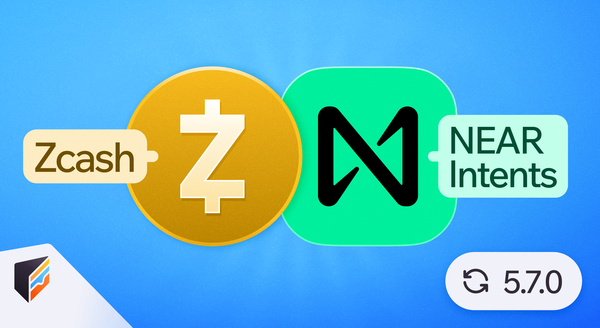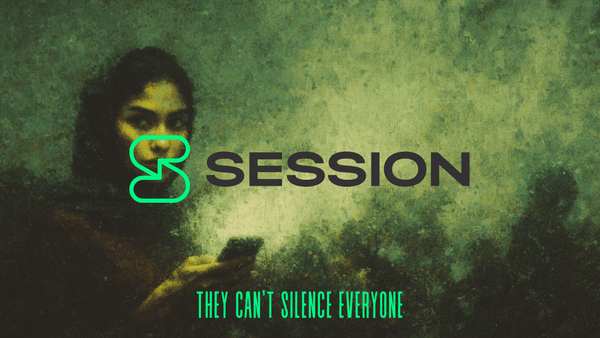Perch wants to be the Spotify for newsletters and blogs
The premise is simple: instead of subscribing to dozens of email newsletters that flood your inbox, Perch aggregates all your favorite writers and publications in one place.

Michael McGuiness knows what it's like to have too many newsletters cluttering your inbox. As the co-founder of Startup Archive, which has grown to millions of monthly impressions and 97,000+ followers on X by curating the world's best startup advice, he's constantly consuming written content from across the internet. But like many heavy readers, he found the traditional newsletter experience frustrating and fragmented.
"My inbox would get cluttered; I'd lose stuff that I really wanted to read; and many of my favorite blogs didn't have newsletters so there was no way of knowing when they published new articles," McGuiness tells us. His solution? Perch, a mobile app that has raised $6 million from Naval Ravikant, Alexis Ohanian, and other investors to build what McGuiness describes as "Spotify for reading", an aggregator for all the writing scattered across the internet.
The premise is simple: instead of subscribing to dozens of email newsletters that flood your inbox, Perch aggregates all your favorite writers and publications in one place. But unlike RSS readers or other aggregation tools, Perch focuses on solving what McGuiness sees as the three main barriers keeping people from reading more: cost, discovery, and ease of use.
The inspiration came from observing how seamlessly podcasts work. "You don't get an email every time there's a new podcast episode. That would be incredibly annoying," McGuiness explains. "Instead, you open your favorite podcast app and all of your episodes are right there." This podcast-like approach extends to discovery. While finding the best newsletter on parenting might require extensive searching across various platforms, finding the top parenting podcast is straightforward. Perch wants to bring that same discoverability to written content.
The app includes AI-powered narration, which has proven popular with users, roughly 40% are using the audio feature. "Audio is a big unlock for a lot of people because there's just more time in the day to listen to stuff," McGuiness notes. "It's hard to find the time to read a 30-minute article on your phone screen. But with audio you can now listen to that article while on a walk, driving on your commute to work, or cooking dinner."
One of Perch's key innovations is eliminating what McGuiness calls the "email commitment" barrier. When you don't have to worry about cluttering your inbox, you're more likely to follow new writers and explore different topics. The app's recommendation engine analyzes articles across the internet to surface content tailored to individual preferences. "Our goal is to reduce the search cost of finding the perfect article for you to a fraction of a second," McGuiness says. The magic moment, according to early user feedback, is "showing them the perfect article every time they open the app."
this app is changing my life. all my newsleters in one place. @perchdotapp am impressed 🔥 pic.twitter.com/r48fypbScM
— Farouk (@0xgodi) September 13, 2025
This approach could fundamentally change how writers build audiences. Instead of competing for attention in crowded inboxes, creators can focus on producing quality content while Perch's algorithm helps connect them with interested readers.
Perch's broader mission extends beyond convenience. The company believes that making great writing more accessible can accelerate human progress. "Writing is how we store ideas, and ideas are the core driver of human progress," the company states. "The easier it is to access great writing, the faster society advances." The app plans to start by aggregating free content from writers who already publish online, then eventually share advertising revenue with creators to attract content currently behind paywalls, similar to YouTube's model.
McGuiness's experience curating content for Startup Archive, where he's spent years identifying valuable startup advice, naturally influences Perch's approach to content discovery. However, he's modest about the direct connection: "I'm not sure if it enhances Perch directly outside of giving people who are looking to learn about startups more great stuff to read when they open the app."
Perch's ambitions extend beyond the mobile app. The company envisions building e-readers for bedtime reading without smartphones, and potentially a free, open-source writing platform. "This is a lifelong journey for us," McGuiness says.
Whether Perch can successfully become the Spotify for written content remains to be seen. The company faces competition from established players like Substack, which has built its own ecosystem around newsletters, and from Big Tech platforms that are increasingly investing in content recommendation algorithms. But for readers frustrated with inbox overload and content scattered across the internet, Perch offers a compelling vision: a single app where great writing is always just a tap away, whether you want to read it or listen to it on your morning commute.
The app is currently available and free to use, betting that better content discovery and a superior reading experience will be enough to change how people consume written content online.








